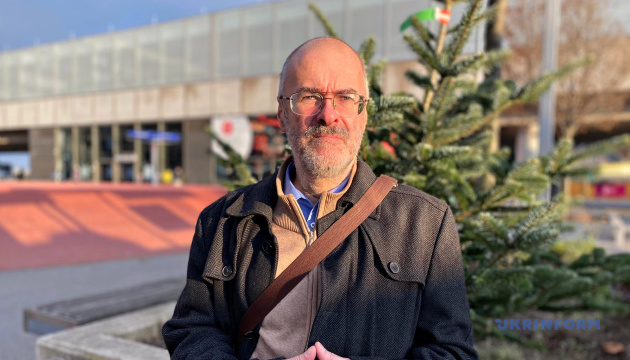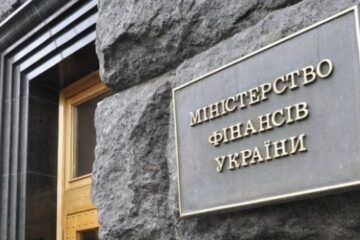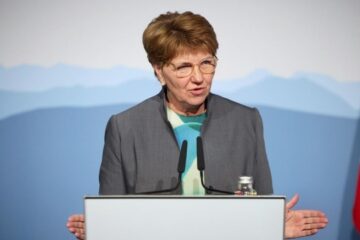
President Zelensky’s Victory Plan is a good summary of Ukraine’s goals in defending itself from Russia’s war of destruction, but the implementation of the NATO membership clause seems unlikely because the West is too afraid of Russia.
This opinion was expressed by independent Austrian political scientist Martin Malek in a commentary to an Ukrinform correspondent.
“The first point of the Victory Plan concerns the invitation to Ukraine to join NATO as soon as possible, and this is where the problems begin. So far, at least seven NATO member states have been skeptical or rejected the invitation. Of course, Germany’s position on this issue is particularly important, and it is in line with the country’s policy on this issue for many years,” he said.
The political scientist recalled that at the 2008 NATO summit in Bucharest, then German Chancellor Angela Merkel categorically opposed the invitation to Ukraine and Georgia to join the Alliance because of Russia’s negative position, “and she got her way.” This was followed by Russia’s invasion of Georgia, to which “the weak West did not react” – and this “once again allowed Putin to feel justified in his imperialist and militaristic policy.”
In October, the current German Chancellor Olaf Scholz also stated that he opposed Ukraine’s invitation to join NATO in the current circumstances, as well as reiterated his long-standing position on not supplying long-range Taurus missiles to Ukraine for fear of “escalation.”
“Scholz is unlikely to change his position, because it would mean that he was wrong from the very beginning. In addition, Scholz would like to divert attention from the fact that Germany does not want a complete victory for Ukraine at all – no matter how such a victory is defined (and a very obvious definition would be the expulsion of all Russian soldiers from Ukrainian territory without exception). The reason for this is that a significant part of the German (and Western European) political elite fears “instability” in Russia or even its “collapse” (which is not even on the horizon) in this case,” Malek believes.
According to the political scientist, another “extremely unpleasant but indisputable truth” is that “almost all Western European politicians are much more concerned with the results of their elections than with the existence and fate of Ukraine.” And at the same time, “peaceful rhetoric” is often particularly useful for election campaigns – “which, in turn, is beneficial to the militarist Putin.” Against this backdrop, Malek pointed to next year’s parliamentary elections in Germany and the possibility that the Social Democratic Party led by Scholz will conduct a “peaceful election campaign,” which in this case “will inevitably be at the expense of Ukraine.”
“Of course, Moscow has long mobilized politicians and parties close to it in Europe and North America against all of Ukraine’s efforts to move closer to NATO with a view to eventual membership. And of course, it is no coincidence that these are the same politicians and parties that have been constantly warning of “escalation” since the beginning of Russia’s large-scale invasion of Ukraine and thus want to prevent military and other support for Ukraine from the EU, NATO and North America,” the political scientist added.
The Austrian political scientist also pointed out that “Putin’s de facto ally, Hungarian Prime Minister Viktor Orban,” who called Zelensky’s Victory Plan “more than terrible,” is against Ukraine’s invitation to NATO, but Slovakia and Turkey also have serious doubts.
In addition, the US presidential election on November 5 will have a particular impact on further support for Ukraine.
“The West is simply too afraid of Russia – unlike Ukraine, whose courage is completely incomprehensible and even frightening to many in the West. First and foremost, because they themselves would have capitulated to Putin’s belligerence out of cowardice a long time ago,” Malek said.
In his opinion, the Victory Plan is “a good summary of Ukraine’s goals in its defense against Russia’s war of destruction,” but “the biggest problem with Zelensky’s plan is that it is very unlikely that Ukraine will join NATO in the foreseeable future.”
“Russia, of course, is aware of this and will do everything possible to maximize the benefits of this fact. Putin has repeatedly made it clear that he will not make any concessions to end the war. Therefore, in order to establish peace, Russia (and its army) must be put in a position, by military and other means, in which it simply cannot continue the war any longer – no matter how much Putin wants it to. The alternative is the destruction of Ukraine as a state and the enslavement of its entire population,” Malek said.
As Ukrinform reported earlier, the Victory Plan presented by President Zelensky includes five points: the first is geopolitical, the second and third are military, the fourth is economic, and the fifth is security.
The first point involves receiving an invitation to join NATO. The second concerns defense, in particular the transfer of a clear list of weapons capable of supporting the strength of Ukrainian soldiers. The third point calls for the creation of a deterrence force. The fourth refers to strategic economic cooperation and increased sanctions pressure on the aggressor. The fifth point is designed for the post-war period and provides for the possibility of replacing certain military contingents of the US Armed Forces stationed in Europe or on other continents with Ukrainian units.
Source: Austrian political scientist on Ukraine's Victory Plan: West is too afraid of Russia



